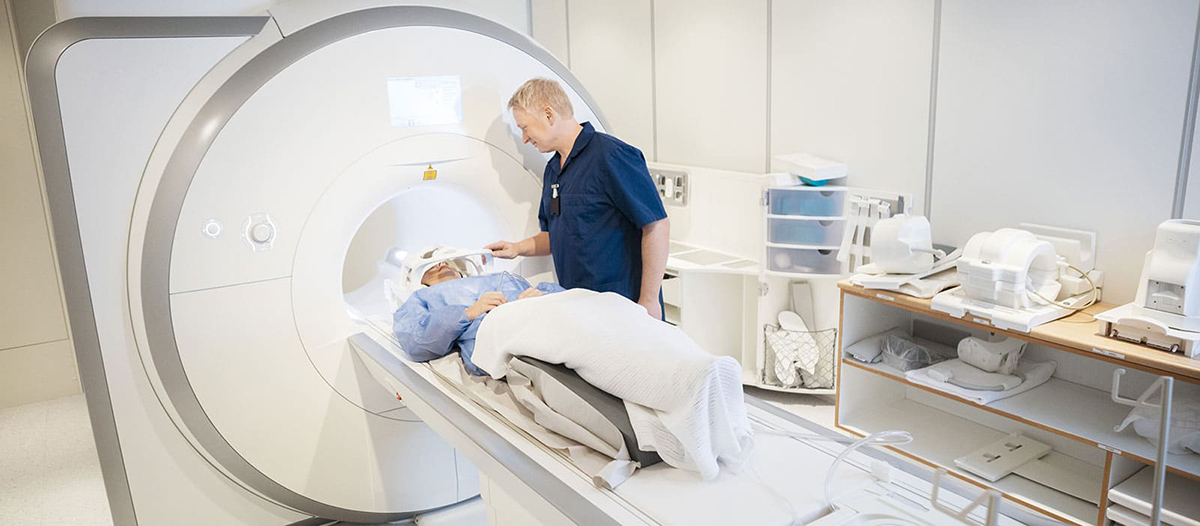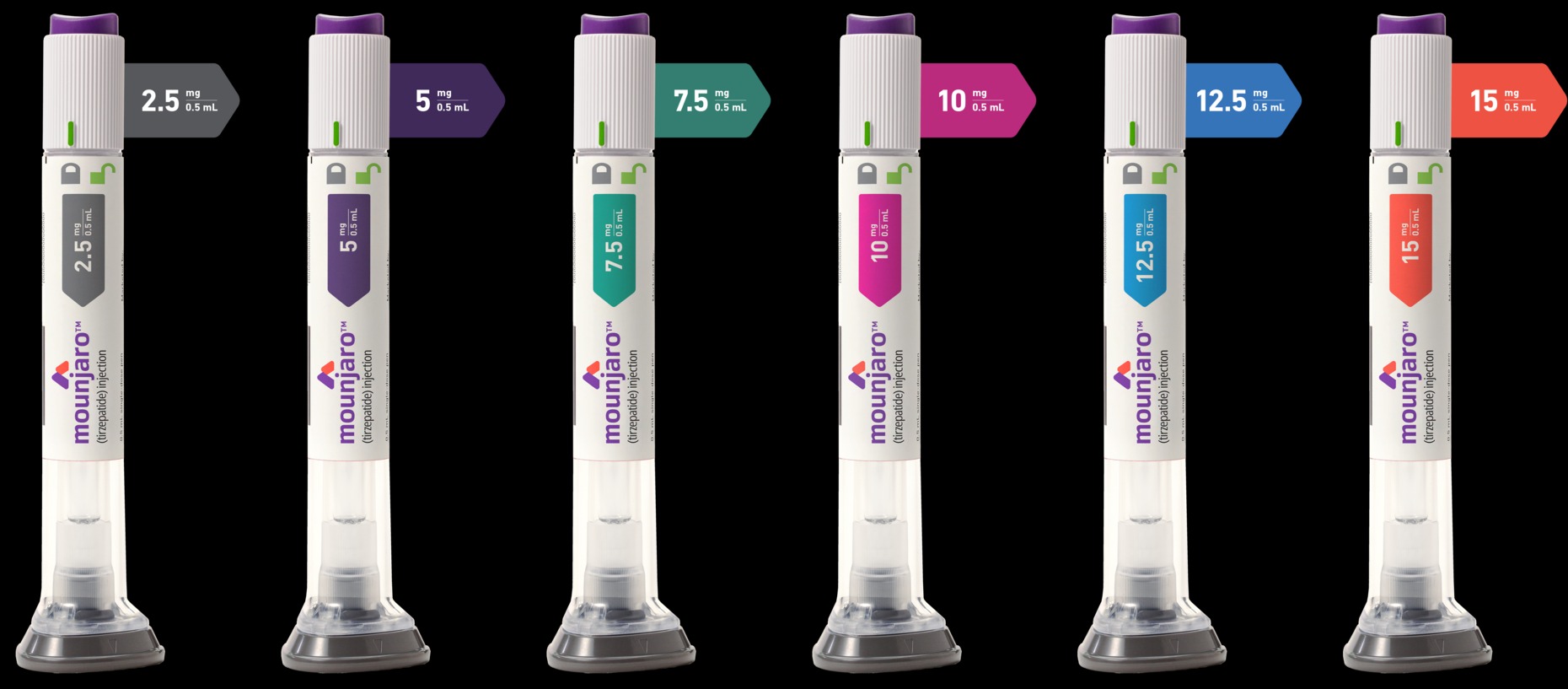

Finance
How To Get An MRI Approved By Insurance
Published: November 18, 2023
Learn how to get your MRI procedure covered by insurance with these finance tips and tricks. Don't let the cost hold you back from getting the medical imaging you need.
(Many of the links in this article redirect to a specific reviewed product. Your purchase of these products through affiliate links helps to generate commission for LiveWell, at no extra cost. Learn more)
Table of Contents
- Introduction
- Understanding the Importance of Insurance Approval for MRI
- Researching Insurance Coverage and Requirements
- Gathering Documentation for Insurance Approval
- Getting a Referral from a Healthcare Provider
- Contacting the Insurance Company
- Submitting an Authorization Request
- Following Up on Insurance Approval Status
- Exploring Alternative Options if Insurance Denies Approval
- Conclusion
Introduction
Welcome to our comprehensive guide on how to get an MRI approved by insurance. Medical imaging, such as Magnetic Resonance Imaging (MRI), plays a crucial role in diagnosing and monitoring various health conditions. However, the cost of these procedures can be significant, making it imperative to navigate the complexities of insurance coverage and approval.
Insurance approval for an MRI is essential to minimize out-of-pocket expenses and ensure smooth access to the necessary medical services. Understanding the process of obtaining insurance approval can be daunting, especially for those unfamiliar with the intricacies of healthcare coverage. That’s why we have created this informative article to guide you through the steps required to successfully get your MRI approved by insurance.
We will explore various aspects of the process, including researching insurance coverage and requirements, gathering the necessary documentation, getting a referral from a healthcare provider, contacting the insurance company, submitting an authorization request, following up on approval status, and exploring alternative options if insurance denies approval.
By following the steps outlined in this guide, you will be empowered to navigate the insurance approval process with confidence and increase the likelihood of obtaining the necessary coverage for your MRI. So, let’s dive in and learn how to get your MRI approved by insurance!
Understanding the Importance of Insurance Approval for MRI
Before delving into the process of obtaining insurance approval for an MRI, it is crucial to understand why it is necessary in the first place. Insurance approval ensures that the cost of your MRI is covered or reimbursed by your insurance provider, reducing the financial burden on you as the patient.
MRI scans are powerful diagnostic tools used to obtain detailed images of internal organs, tissues, and structures within the body. These images aid healthcare professionals in identifying and diagnosing a wide range of medical conditions, including musculoskeletal injuries, neurological disorders, and cardiovascular abnormalities, just to name a few.
However, MRI scans can be expensive, with costs ranging from a few hundred to several thousand dollars, depending on the complexity of the scan and the healthcare facility. By obtaining insurance approval, you can significantly reduce or even eliminate the out-of-pocket expenses associated with your MRI.
Insurance approval for an MRI typically involves understanding your insurance coverage and policy limitations. Different insurance providers have varying guidelines and criteria for approving medical procedures, including imaging studies like MRI scans. It is essential to familiarize yourself with your insurance plan and its coverage for diagnostic tests, ensuring that you meet the necessary requirements.
Moreover, insurance approval for an MRI ensures that the scan is medically necessary and appropriate for your specific health condition. Insurance companies analyze the information provided by your healthcare provider and review the documentation to determine if the requested MRI is justified. This helps prevent unnecessary or excessive use of medical resources, ensuring that resources are allocated efficiently and appropriately.
Without insurance approval, you may be faced with significant financial obligations, making it challenging to access the medical care you need. Furthermore, many healthcare providers require insurance approval before scheduling an MRI, so obtaining the necessary authorization is crucial to move forward with the procedure.
Now that you understand the importance of insurance approval for an MRI, let’s proceed to the next section, where we will explore how to research insurance coverage and requirements.
Researching Insurance Coverage and Requirements
When it comes to obtaining insurance approval for your MRI, it is crucial to understand your insurance coverage and the specific requirements set by your insurance provider. This knowledge will help you navigate the approval process effectively and ensure that you meet all the necessary criteria.
Start by reviewing your health insurance policy. Look for information regarding coverage for diagnostic tests, including MRI scans. Pay attention to any limitations or exclusions specified in your policy. This will give you a general idea of what to expect regarding coverage and potential out-of-pocket expenses.
Next, contact your insurance provider to obtain more detailed information about their coverage for MRI scans. You can find the contact information on your insurance card or by visiting the insurance company’s website. Reach out to their customer service department and inquire about their specific requirements for MRI approval.
Ask questions such as:
- Do I need a referral from a healthcare provider before seeking approval for an MRI?
- Are there any pre-authorization requirements for MRI scans?
- What documentation is needed to support the medical necessity of the MRI?
- Are there any network restrictions for the facility where I can have the MRI?
- What percentage of the cost will be covered by insurance?
- Will I have any out-of-pocket expenses, such as a deductible or co-payment?
Take detailed notes during your conversation with the insurance representative, including the date, time, and name of the person you spoke with. This information can be helpful if any issues arise during the approval process.
Additionally, it is essential to communicate with your healthcare provider or referring physician. They can provide valuable insights into the insurance process and help guide you through the necessary steps. They may have experience dealing with insurance approvals for MRI scans and can provide guidance on the specific documentation required by your insurance provider.
By researching your insurance coverage and requirements, you will have a clearer understanding of what is expected and be better prepared to approach the insurance approval process. In the next section, we will discuss how to gather the necessary documentation for insurance approval.
Gathering Documentation for Insurance Approval
When seeking insurance approval for an MRI, it is crucial to gather all the necessary documentation to support the medical necessity of the procedure. This documentation will help demonstrate to your insurance provider that the MRI is essential for diagnosing or monitoring your specific health condition.
Start by obtaining a referral from your healthcare provider. Many insurance companies require a referral or authorization from a healthcare professional before approving an MRI. Your primary care doctor or specialist can assess your symptoms and determine if an MRI is necessary in your particular case.
Once you have the referral, communicate with your healthcare provider to request any additional documentation that may be required for insurance approval. This may include medical records, test results, or clinical notes that support the need for an MRI. The more comprehensive and compelling the documentation, the higher the chances of obtaining insurance approval.
If you have previously undergone relevant medical tests, gather copies of those results as well. These tests may include X-rays, CT scans, or ultrasound examinations. Having a complete medical history and diagnostic record can strengthen your case for insurance approval.
It is also essential to ensure that all the documentation is up-to-date and includes correct information. Double-check dates, names, and any relevant details to avoid any potential inaccuracies that could delay the approval process.
In addition to medical documentation, you may also need to provide proof of insurance coverage. This can include your insurance card, policy information, and any documentation related to your coverage for diagnostic tests or imaging studies.
As you gather the necessary documentation, organize it in a clear and organized manner. This will not only make the approval process smoother but also help you have easy access to the documents if there are any questions or inquiries from the insurance company.
Remember, the goal of gathering documentation is to provide a comprehensive and compelling case for the necessity of the MRI. By presenting a well-organized package of supporting documents, you improve the chances of obtaining insurance approval for your MRI.
In the next section, we will discuss the importance of getting a referral from a healthcare provider before seeking insurance approval.
Getting a Referral from a Healthcare Provider
When it comes to obtaining insurance approval for an MRI, one crucial step is getting a referral from a healthcare provider. A referral serves as a recommendation from your primary care doctor or specialist, indicating that an MRI is medically necessary for diagnosing or monitoring your specific health condition.
Start by scheduling an appointment with your healthcare provider to discuss your symptoms and concerns. Explain why you believe an MRI is necessary and provide any relevant medical history or test results you have on hand. Your healthcare provider will evaluate your condition and determine if an MRI is appropriate in your case.
If your healthcare provider agrees that an MRI is necessary, they will issue a referral for the procedure. This referral typically includes information such as the specific type of MRI requested, the reason for the referral, and any supporting details or documentation that may be required by your insurance provider.
Why is a referral important for insurance approval? Many insurance companies require a referral or authorization from a healthcare provider before approving an MRI. This is to ensure that the procedure is medically necessary and that appropriate steps have been taken to diagnose or monitor your health condition before resorting to more advanced imaging studies.
Having a referral shows the insurance company that the decision to proceed with an MRI is based on the professional judgment of a healthcare provider. It adds an extra layer of credibility to your request for insurance approval.
Furthermore, having a trusted healthcare provider involved in the process can also provide guidance and support. They can help you gather the necessary documentation, navigate the insurance approval process, and advocate for your healthcare needs.
It’s important to note that some insurance plans may have specific requirements for referrals. They may limit the providers authorized to issue referrals or require prior authorization from the insurance company before the referral is issued. It’s essential to familiarize yourself with your insurance plan’s referral process and follow the necessary steps accordingly.
By obtaining a referral from a healthcare provider, you ensure that your request for insurance approval for an MRI is well-documented and supported by medical professionals. This increases the likelihood of obtaining the insurance approval you need. Next, we will discuss the crucial step of contacting the insurance company.
Contacting the Insurance Company
Once you have gathered the necessary documentation and obtained a referral from your healthcare provider, the next step in getting your MRI approved by insurance is to contact your insurance company. Directly communicating with the insurance company will allow you to inquire about their specific requirements and navigate the approval process more effectively.
Before contacting the insurance company, it’s essential to have your insurance card and policy information readily available. This will help expedite the conversation and ensure you provide accurate information when discussing your coverage.
Start by locating the contact information for your insurance company. You can find this information on your insurance card or by visiting the insurance company’s website. Look for their customer service phone number or email address designated for inquiries related to pre-authorization or diagnostic tests.
When reaching out to the insurance company, be prepared to provide them with important details, including:
- Your personal information: Provide your full name, policyholder identification number, and any other identifying details they may request.
- The specific type of MRI requested: Inform them of the specific type of MRI your healthcare provider has recommended and the reason for the procedure.
- Referral information: Mention that you have obtained a referral from your healthcare provider and provide any relevant details or documentation they may require.
- Documentation: Inform them that you have gathered the necessary medical documentation to support the medical necessity of the MRI, and ask if there are any additional documents they require.
During the conversation, be sure to take detailed notes, including the date, time, and the name of the representative you spoke with. This documentation can be helpful for reference and follow-up purposes if any issues arise during the approval process.
Ask the insurance representative about the specific steps you need to take to submit an authorization request. Inquire about any forms or online portals you need to utilize and ask for guidance on the submission process and timeline.
Remember to stay polite and courteous throughout the conversation, even if you encounter challenges or complications. Maintaining a positive and respectful attitude can help foster better communication and potentially expedite the process.
By contacting your insurance company, you ensure that you have the most up-to-date information regarding their requirements and procedures. This will help you navigate the insurance approval process more smoothly. In the next section, we will discuss submitting an authorization request for your MRI.
Submitting an Authorization Request
Once you have gathered all the necessary documentation and contacted your insurance company, the next step in getting your MRI approved is submitting an authorization request. This formal request notifies the insurance company of your intent to undergo an MRI and asks for their approval of coverage.
Start by reviewing the information provided by your insurance company regarding the submission process. They may have specific forms or online portals designated for authorization requests. Make sure you understand the requirements and guidelines outlined by your insurance provider.
Complete the authorization request form accurately and thoroughly. Include all the necessary details, such as your personal information, policy details, referral information, and any supporting documentation. Be sure to follow any specific instructions provided by your insurance company, such as attaching copies of relevant medical records or test results.
Pay close attention to the timeline for submission. Submit your authorization request within the specified timeframe to avoid any delays or possible denials. If you have any questions or concerns during the completion of the form, don’t hesitate to reach out to your insurance company’s customer service representative for guidance.
Keep copies of all documents and correspondence related to your authorization request. This includes a copy of the completed form, supporting medical documentation, and any confirmation or reference numbers provided by the insurance company. These copies will serve as your records and can be helpful for reference or follow-up purposes.
Submit your authorization request promptly to initiate the review process. The insurance company will assess your request, along with the provided documentation, to determine if the MRI is medically necessary and eligible for coverage based on your policy.
Be prepared for a potential waiting period while the insurance company evaluates your request. This process can take several days or even weeks, depending on the insurance company’s workload and specific review process. If you haven’t received any updates after a reasonable amount of time, it’s advisable to reach out to the insurance company for an update.
Remember, the goal of submitting an authorization request is to obtain formal approval and coverage for your MRI. By adhering to the guidelines and requirements set by your insurance provider, you increase the likelihood of a successful approval process. In the next section, we will discuss the importance of following up on the insurance approval status.
Following Up on Insurance Approval Status
After submitting your authorization request for your MRI, it’s crucial to follow up on the status of your insurance approval. Following up allows you to stay informed, address any potential issues or delays, and ensure that the approval process is progressing smoothly.
Start by noting the date of submission and the expected timeline for a response from your insurance company. Typically, insurance companies have a specific timeframe within which they aim to review and respond to authorization requests. It’s important to have realistic expectations and give them the necessary time to process your request.
If the expected timeframe has passed, or if you haven’t received any updates or communications from your insurance company, it is advisable to reach out and follow up on the status of your request. Contact their customer service department and provide them with the necessary details, such as your name, policy number, and date of submission.
Ask about the progress of your authorization request and inquire if any additional documentation or information is required. Communicating with the insurance company allows you to address any potential issues or provide any missing information promptly.
During your follow-up conversation, take detailed notes of the discussion, including the date, time, and the name of the representative you spoke with. This documentation serves as a record of your communication and can be helpful for future reference.
Be prepared for different outcomes during the follow-up process. Your insurance approval status may fall into one of the following categories:
- Approved: Congratulations! If your authorization request is approved, make sure to request written confirmation of the approval, including any details about coverage, deductible, and copayment.
- Pending: In some cases, the insurance company may require additional time for review or may have specific criteria that need to be met before finalizing their decision. In this situation, ask for an estimated timeline for a resolution and any necessary steps you need to take.
- Additional information needed: The insurance company may request further documentation or information to support your request. If this happens, promptly provide the requested information and ask for confirmation of receipt to keep the process moving.
- Denied: In unfortunate instances where your authorization request is denied, ask for a detailed explanation of the denial reason. You may have the option to appeal the decision or explore alternative options, which we will discuss in the next section.
By actively following up on your insurance approval status, you stay informed and can take appropriate action based on the outcome. Remain patient, but proactive throughout the process to ensure a favorable resolution. Next, we will discuss alternative options to explore if your insurance denies approval for your MRI.
Exploring Alternative Options if Insurance Denies Approval
If your insurance denies approval for your MRI, it can be disheartening and frustrating. However, it’s important to remember that there are alternative options available to explore. Here are some steps you can take if your insurance denies approval:
1. Appeal the decision: Review the denial letter or explanation provided by your insurance company. Understand the reason for the denial and determine if you have grounds for an appeal. Many insurance companies have an appeals process in place, allowing you to present additional evidence or arguments to support your case. Follow the instructions provided in the denial letter for initiating an appeal, and provide any necessary documentation or statements from your healthcare provider. It’s essential to adhere to the appeal deadlines and submit a strong and compelling case for overturning the denial.
2. Negotiate with the healthcare provider: Contact the facility or healthcare provider where you are scheduled to have the MRI and explain that your insurance denial was unsuccessful. In some cases, they may be willing to negotiate the cost of the MRI or work out a payment plan to make it more affordable for you. They may also provide resources or financial assistance programs to help cover the expenses.
3. Research financial assistance options: Look into organizations or foundations that provide financial assistance for medical procedures. Some non-profit organizations offer grants, scholarships, or other forms of aid to individuals who need help covering medical expenses. Research local and national resources and reach out to them to inquire about their assistance programs.
4. Consider cash-pay options: While this may not be feasible for everyone, some healthcare providers offer discounted rates for individuals who choose to pay for the MRI out-of-pocket. Discuss the possibility of a cash-pay rate with the facility where you plan to have the MRI and ask if any payment plans or discounts are available.
5. Seek a second opinion: If your insurance denies approval and you believe that an MRI is still necessary for your health condition, consider seeking a second opinion from another healthcare provider. They may have a different perspective or approach to your diagnosis and recommend alternative imaging studies or further diagnostic tests that could be covered by your insurance.
Remember, each situation is unique, and the options available may vary depending on your specific circumstances, insurance plan, and healthcare providers. It’s crucial to keep communication open with your healthcare provider and explore all possible avenues to access the necessary diagnostic information.
Throughout this process, remain persistent and determined in advocating for your health needs. Patience and resourcefulness can go a long way in finding a solution that works for you. In the final section, we will conclude our guide on how to get an MRI approved by insurance.
Conclusion
Navigating the process of getting an MRI approved by insurance can be complex, but understanding the importance of insurance approval and taking the necessary steps can help ease the financial burden and ensure access to necessary medical services. Throughout this comprehensive guide, we have explored the key components involved in obtaining insurance approval for an MRI.
We began by emphasizing the importance of insurance approval and how it can significantly reduce out-of-pocket expenses. We then discussed the crucial steps of researching insurance coverage and requirements, gathering the necessary documentation, obtaining a referral from a healthcare provider, contacting the insurance company, and submitting an authorization request. Following up on the insurance approval status and exploring alternative options if insurance denies approval were also discussed as important considerations.
Remember, it is essential to research and understand your insurance coverage, communicate with your healthcare provider, and be proactive in your interactions with the insurance company. By doing so, you increase the likelihood of a successful approval process and minimize any potential obstacles along the way.
In the event that your insurance denies approval, don’t lose hope. Explore alternative options, such as appealing the decision, negotiating with the healthcare provider, seeking financial assistance, or getting a second opinion. There are resources and strategies available to help you access the medical care you need.
Ultimately, obtaining insurance approval for an MRI requires persistence, patience, and proactive engagement. By following the steps outlined in this guide and leveraging the support of healthcare professionals, you can navigate the insurance approval process with confidence and increase the likelihood of getting your MRI approved.
We hope this guide has provided you with valuable insights and guidance on how to navigate the complex realm of insurance approval for an MRI. Remember, always consult with your healthcare provider and insurance company for specific details and requirements related to your own unique situation.














